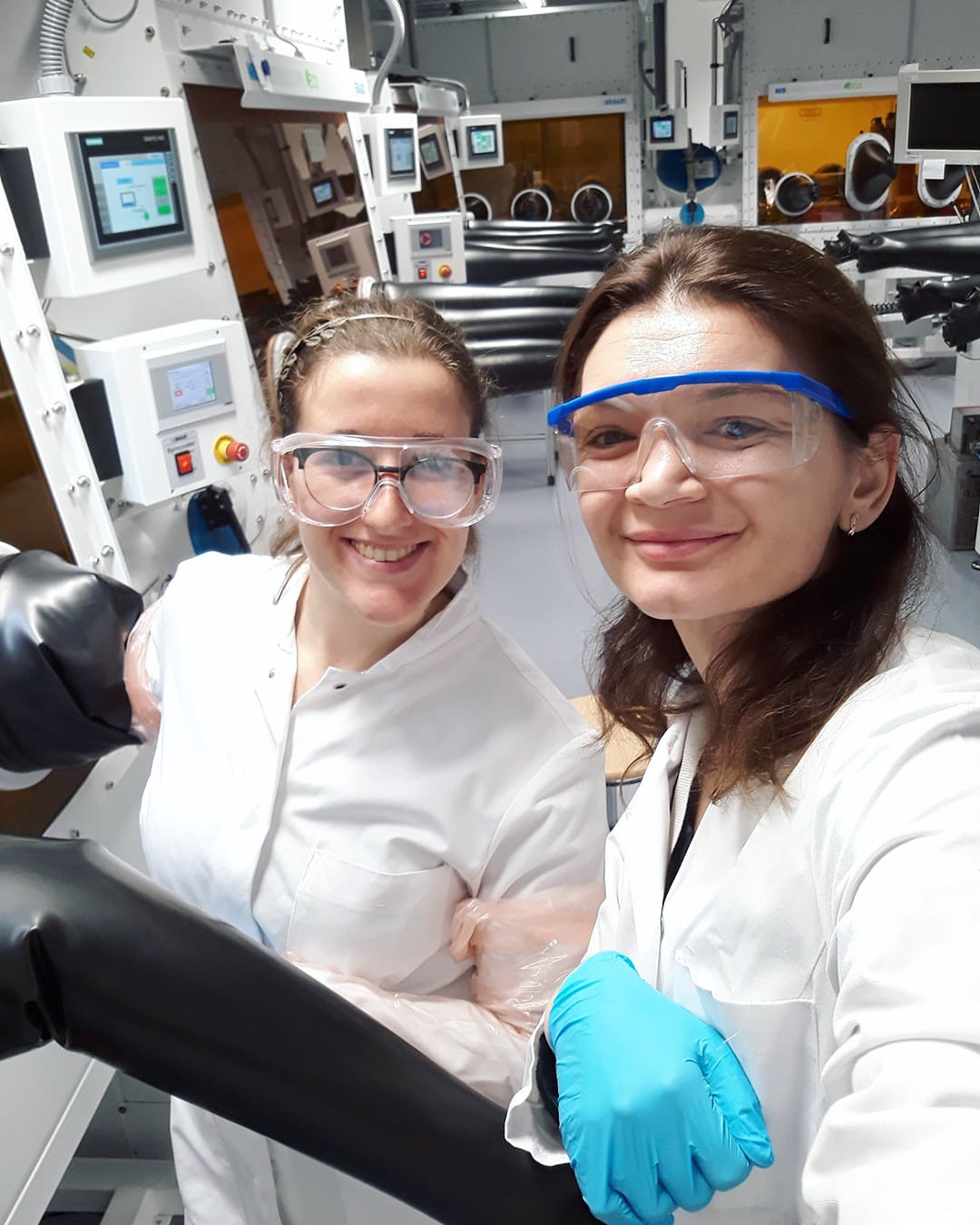
Looking for work? Here are 10 points worth considering
I have been working on my PhD for a year now! – I say as I raise my cup of tea to make a toast for the anniversary. Usually, this would be a glass of wine, but since tomorrow I hit the lab at 7am, I think the wine will have to wait. That being said, and without further due, let me get down to the point.
What did I learn during this year? And what should you pay attention to when choosing your next job?
1. The process matters.
We usually read posts like this one after the work is done. What did I learn after I quit my job; had my kids; or, completed my PhD? However, you learn much more while experiencing, than while reflecting on past experiences. If you take the time to consider your feelings, your opinions, your everyday challenges while you are experiencing them, you will also be able to alter them.
2. The most important thing at your work is…
…the fact that there is no one answer to this question. I heard people around me making all sorts of statements.
- The most important is to be early at work. Not true, everyone is productive at different hours and what matters is the work to be done.
- The key is to do what your boss wants. Not true, because your boss did not hire a servant, s/he hired a competent person who is supposed to use her/his brain.
- The crucial factor is to be a fast learner. Partially true, because it shows you can adjust to your new work and gain all the knowledge that the classroom omitted to give you.
I can give just as many examples, but it comes down to actually only one answer. The most important thing at your work is to find the answer to this question yourself. Do not compare yourself to others and ignore their constant pressure to do something their way, if you feel like this is more harmful, than helpful.
Put more precisely: once you realize what are your strengths at work you will put those to use extensively. Once you find out what your weaknesses are at work, you will either start working on them or ask for help. By doing both, you will not only optimize your work, but also learn what you want from your work, how you work, and how you achieve the best results in the most efficient way.
3. Networking at work matters. Always.
I cannot stress this enough. Wherever you are working, whatever you are doing, chances are: you will not be there until you retire.
Many people spend plenty of years in a job just because they are not aware what is out there. They fail to build a network of people or work on their ability to reach out and try something different. The comfort zone gets dangerous when it gets too comfortable.
During my one year work at the Helmholtz Zentrum Berlin, I have become a PhD representative, and got to know almost all of the doctoral researcher at our two campuses. I have attended career days and several workshops. I visited seminars that are not directly correlated to my work and have been positively surprised.
Later this month, I will be part of the communication team at the N2 event which is organized by the N2 network – the biggest association of doctoral researchers in Germany.
I applied and was invited to attend the Global Solutions Summit where I met people from all over the World. I shared their passion to tackle the problems that the World is nowadays facing and heard the most ingenious ideas from people in politics, science, computer science, medicine, journalism, NGO-s. Even young people who work on their own start-ups. I even got a few business cards and words like: “I would be open to have you in my team one day”. And who knows, maybe I would be too.
The important point is: there is a whole range of jobs and fields out there you have never even thought of, let along heard of! Academia made me think that we need to be so focused on one field and become experts in it, otherwise we are failures. Networking showed me that you can have broad interests and there will always be people who will love and seek your transdisciplinarity. It raised my self confidence and made me feel like my work can have a purpose.
4. Independence or supervision at work?
In truth, a balance between the two. Your learning curve does not flatten when you get a job. Regardless if you are into science and research, or in a start-up, or in a long-lived company, you should choose a working place that is open for your ideas, but also has the experts who can provide answers to your questions.
In full honesty, I think I learned this point quite earlier. During my master thesis, I really felt like I lacked supervision. I loved my topic, the field, the way it made me think… but I was not able to produce results. This was mostly because I did not have the necessary knowledge, but also because my supervisor and professor somehow forgot that the master thesis is a time when I need to learn, not be left alone all the time.
I felt borderline afraid to ask my questions. Sometimes, I even got wrong answers when I dared to ask. It is so sad that all of my motivation, enthusiasm, and interest for the field were killed only because I felt greatly discouraged. With time, I just lost my wish to work and my days turned into endless hours of pointlessness and my nights into endless hours of crying. I sometimes still reflect on the frustration and realize that many things could have been handled differently if I only felt confident enough to say “I need help”.
Now, I have a supervisor who does not control me, but is extremely approachable and patient. He lets me be independent, and I feel comfortable to state my opinion, because I know he is open to discuss it.
Thus, finding a team which sees your abilities, and supports their growth is of paramount importance. Your supervisor should not be commanding you, but s/he should be guiding you. She or he can provide this guidance either by sensing that you need help and noticing you are stuck; or, by always having an open door for you.
5. Your work team (dynamics) matters.
You will never enjoy your work if you feel like a social outcast at your work. Even if you love your work or project, feeling like you do not belong in the team will decrease your performance. The team matters equally – if not more – when we grade how much we like our job.
Your colleagues do not have to be your best friends, but you should be able to ask for their help (at work). We learn as much from our teammates as from our books. With their help, we break the monotony of the working place, we feel accepted, and we share our struggles. Having someone to talk to who is fighting the same obstacles as you do, builds an incredible amount of trust and soft skills that can later be used in any job.
On a deeper psychological note why the social dynamics at work matters is because we fail to distinguish between “I do not fit here” and “I am incompetent”. If you struggle to bond with your team, you might start to think that this is because you are (socially) incompetent. With time, you might extend this “social incompetence” to “working incompetence” and be convinced that you also cannot do your job. Which, since you got the job in the first place, is probably not so true. But, we are social beings and failing to have a good social dynamics decreases the quality of our work as well.
6. Your social life outside of work matters.
A natural continuation to point 5. is the importance of social life outside of your work. Although spending time alone is important to reflect and recharge, eventually you will want and need to have some fun. Support. Listening ear. Friendly hug. Someone or something that takes your mind off work, so that your brain would be able to hear “you are not alone”. And why should you be? There are people out there with whom you can have an enjoyable evening or weekend without feeling like this is just another obligation on your list. Reach out to these people. Do not feel guilty for not working all the time.
7. Your working place – and how much it cares about its employees – matters.
There are so many important questions when you are deciding whether the conditions at your working place are satisfactory. It is not just about the salary!
- What are my core moral values and does my working place go in line with them?
- How is the work-to-life balance? Does my working place support the formation of a family?
- Does my working place care about my mental health? Do I notice a great (dis)satisfaction among my colleagues?
- What does my working place do to encourage my bonding with my team?
- Are there any trainings, social events, or business events that would improve the quality of my work?
- Is my working place open to hear my dissatisfaction, without me facing any repercussions?
You should choose a working place that answers these questions in a way that you want them to be answered. Do not be afraid to negotiate and keep on searching if the first offer that comes along does not go hand-in-hand with your needs.
8. The city where you work matters.
I moved to Germany in 2011. I firstly lived in Bremen and was depressed by the gloomy and windy weather. So, I moved to the sunniest town in Germany – Freiburg. It is a gorgeous place, but I was tortured by its small size, and by my inability to find live music or a cool art gallery whenever I wanted to. Finally, I moved to Berlin for my PhD.
Actually, I have lived in Berlin for three months in 2015 and I loved it! I did an internship at the same institute where I am doing my PhD now and somehow, all the pieces of the puzzle came into place then. So, I was looking forward to coming back. Berlin never disappoints me. It is the city of my dreams – at least for now. I find unprecedented beauty in its mixture of chaos and order. I can never be bored here. My creativity skyrockets, my mood and social life improve, my wish to work increases. I feel at home here.
Choose a city (or town, or village) that enables you to do the activities you enjoy doing. You owe explanations to no one, but you owe it to yourself to be where you want to be.
9. Ambition is important, but what else?
At the end of the day, ambition and dedication will make you reach your goals. You will feel certain power in making a consistent working routine. Or in having a good time-management skills. Talent and ambition are advantages, but they start to work against you if you ever consider them to be enough. Sooner or later, the people who value dedication above all will notice the people who compensate with hard work for the lack of talent and just like that – your dream job will be gone.
On top of that, each field is nowadays expanding so fast that you have to stay informed and curious in order to keep track. You do not have to be a slave to the new information, but if you are working consistently, the information will reach you naturally.
10. Gratitude in and outside of work matters.
Last, but not least, be grateful. To yourself – for working so hard, not quitting, and always being ready to learn. Be grateful to your team – for being there for you and making your job easier. To your supervisor – who supports you, guides you, and helps you grow intellectually and personally. Be grateful to your company or institute – for giving you the working conditions that enable to sleep well at night. To your network, support system, social life and anything else that breaks the work monotony and reminds you that there is more to life than just work. By being grateful, you will start to appreciate yourself and your work more. This, in return, will make you more motivated to work and the results will only follow
All of these points influence the most important aspect in your life: your mental health.
Your mental health is everything! It is your most precious gift. Cherish it.
Your life is a mixture of working, learning, socializing. It is a hybrid of being independent, but also learning how to do team work and team building in order to expand your talents. You need all of these aspects to be at least somehow addressed in order to maintain a good life quality. Only when they cooperate you will reach a certain satisfaction. When you sacrifice one for the other, you run at the risk of sacrificing your mental health and if you allow this to happen – everything is downhill from there.




2 Comments
Pingback:
Faheem
Very nicely put together, very informative. Thanks for sharing, I have learnt from your blog.